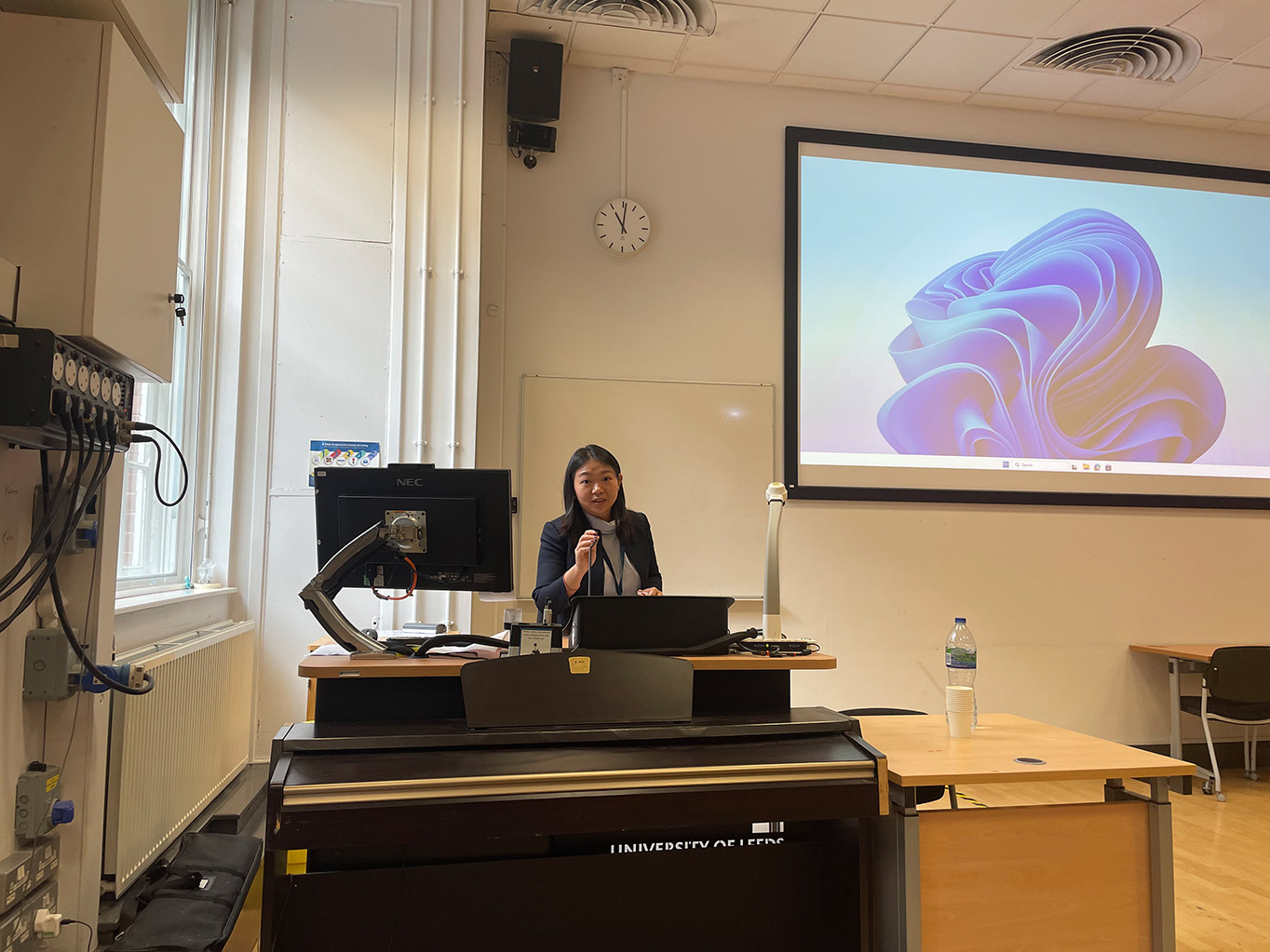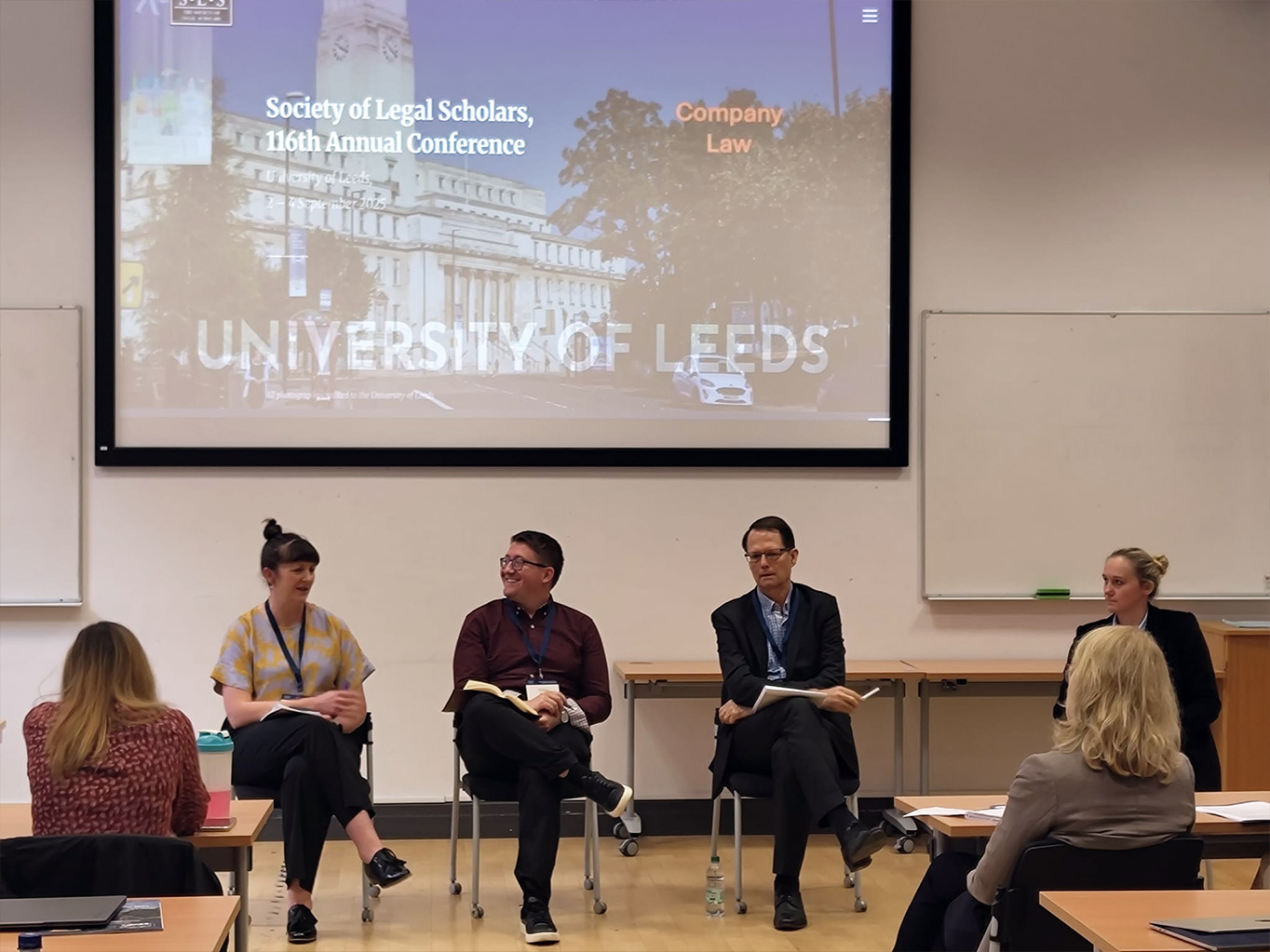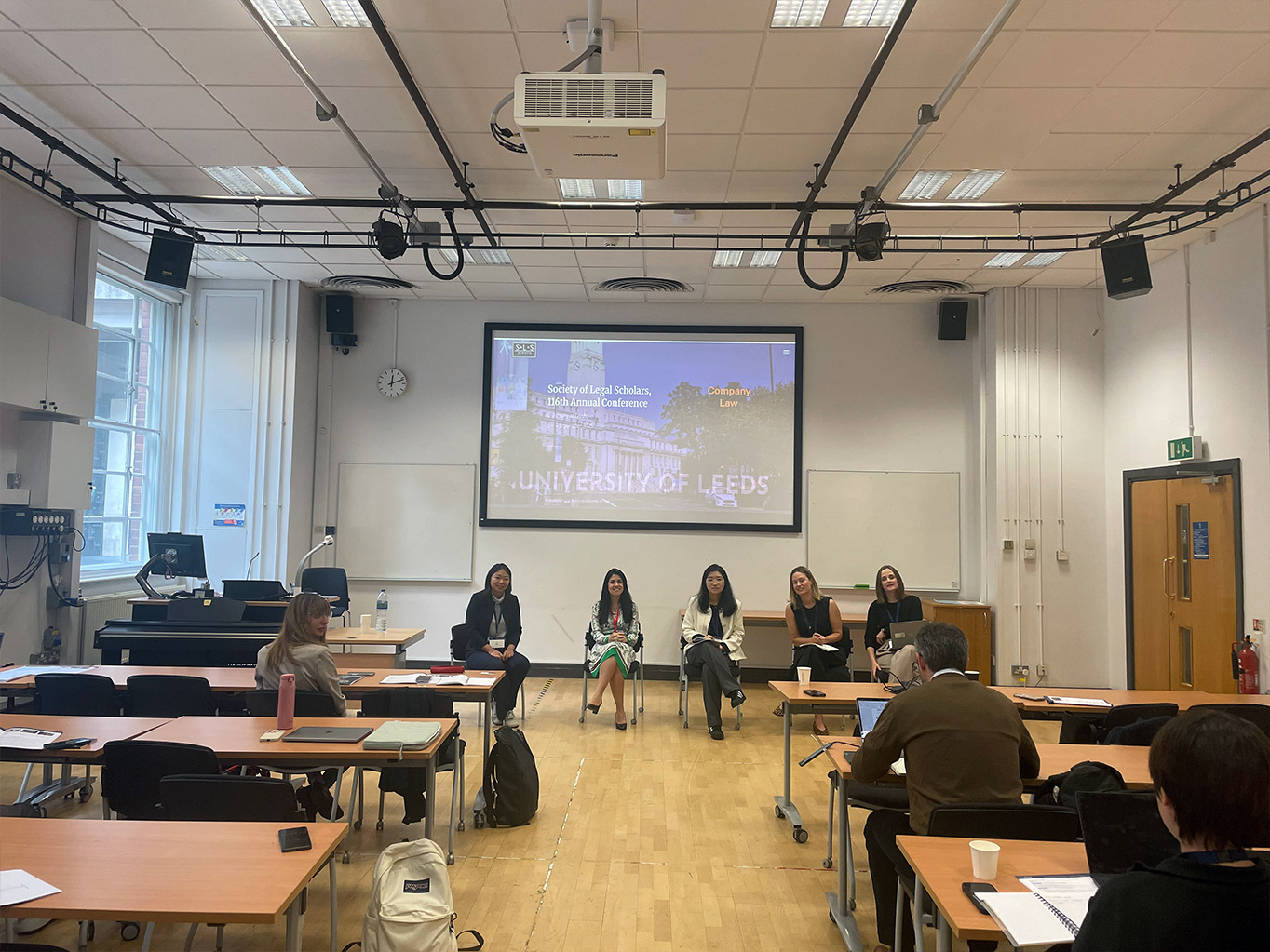Company Law at the Society of Legal Scholars
The Company Law section was led for the first time this year by Victoria Barnes and Zi Yang.

The University of Leeds hosted the Society of Legal Scholars Conference this year. The Company Law section was led for the first time this year by Victoria Barnes and Zi Yang. The community comprised of a lively group of international scholars, who were engaged in research on company law, whether that be from a traditional background or more looking at the area of law from the perspective of employment law, competition law or contract law. The section showcased 12 papers written by 17 authors from 6 jurisdictions.  Zi Yang opening the session
Zi Yang opening the session
The first session examined the company through multidisciplinary approaches. Philip Gavin explored corporate decision making through the Overton window, a leading concept in political science. He argued that companies reacted to new DEI policies cautiously. Christian Witting considered different corporate theories and models. He argued that companies were much more like cells, which grew and developed, than contracts and agencies. Genevieve Grant drew new insights from her dataset of shareholder oppression cases. She showed how the litigation process was longer owing to different factors and examined the background of the litigants involved.
 L-R: Genevieve Grant, Philip Gavin, Christian Witting, Victoria Barnes
L-R: Genevieve Grant, Philip Gavin, Christian Witting, Victoria Barnes
The second session was themed on comparison and learning. Peter Underwood and Lynn Buckley explored the differences between UK and New Zealand law on good faith. Despite their differences, they found that the statutory law achieved the same result.
Using panel data from Chinese listed SOEs, Say Hak Goo and Tengqian Wang reveal how the pre-discussion mechanism improves ESG scores, financial performance and innovation. Their study provided a functional alternative to Western corporate governance norms. Paweł Mazur examined the concept of equal treatment for shareholders in Lithuania, Poland and Germany. He found that the law here placed emphasis on equality but fairness and good faith more be more appropriate measures.
The third section was centred on technology. Eleanore Hickman and Philippa Collins proposed the introduction of a worker participation committee to reduce the domination of workers and enable their participation in decision-making. Meanwhile, Guanqun Qin inspired us to rethink shareholder primacy in the age of AI. To protect stakeholders against the AI black box, she proposed a technology committee to increase transparency in corporate governance in the digital age. Anna Tzanaki and Casimiro Nigro explores the Legal Determinants of Common Ownership, bringing insights from both competition and corporate Law.
 L-R: Zi Yang, Anna Tzanaki, Guanqun Qin, Eleanore Hickman and Philippa Collins
L-R: Zi Yang, Anna Tzanaki, Guanqun Qin, Eleanore Hickman and Philippa Collins
The final section considered frameworks around shareholders and stakeholders. Claudia Paduano critically examined the law and economics theory. She developed a taxonomy of corporate externalities within company law to protect social and environmental interests. David Gibbs-Kneller and Arad Reisberg illustrated that the company constitution is not a contract and that viewing it as such creates conflicts with majority rule. They contend that recognising it as constitutional better protects against injustice and abuse of power. Bonheur Minzoto argued that limited liability was always intended to apply to tort creditors and corporate groups, challenging the view that its extension was an accidental historical development. He shows that this application reflects deliberate policy choices and path dependency.
These papers prompted a lively discussion in the audience. It was often about the letter of the law and what it exactly said or what it should say. These theoretical ideas were the hot topics and provoked keen debates among company lawyers. The evolution of metaphors, concepts and precision in language all became muted ideas in the present. There is still a need to test these ideas and see how if they hold out in practice in the business world and if they move beyond the confines of law. Empirical work would bring some novel insights and enhance the development of new theory. There is clearly a changing mood in company culture and the regulation of it with the demise of ESG and the growth of right wing political parties. Debates about how to make corporations more responsive and accountable (and to whom) continue and remain pertinent.
The Company Law section meets again on the 7th and 8th November. It will hold a conference at IALS on Company Law and Sustainability, where these issues will be discussed in more detail.
